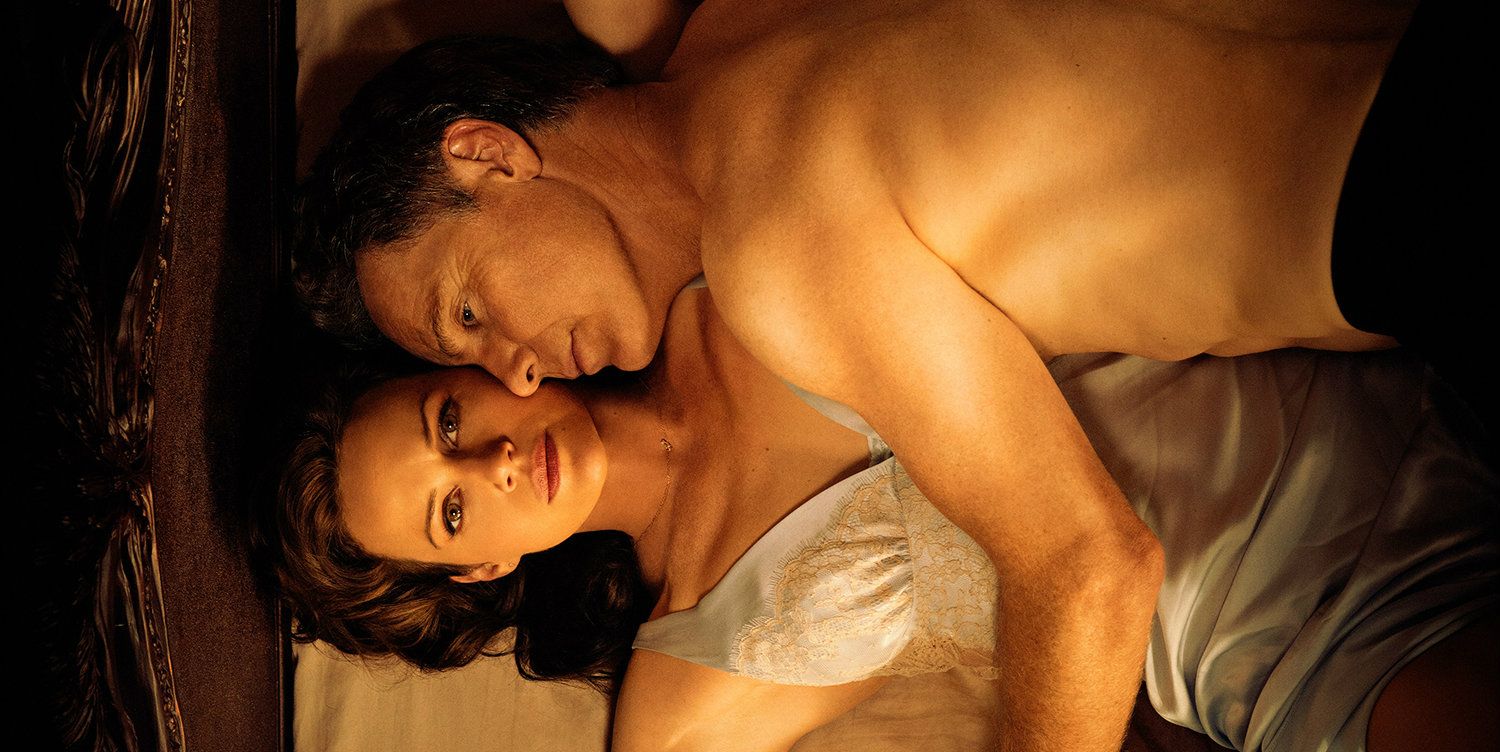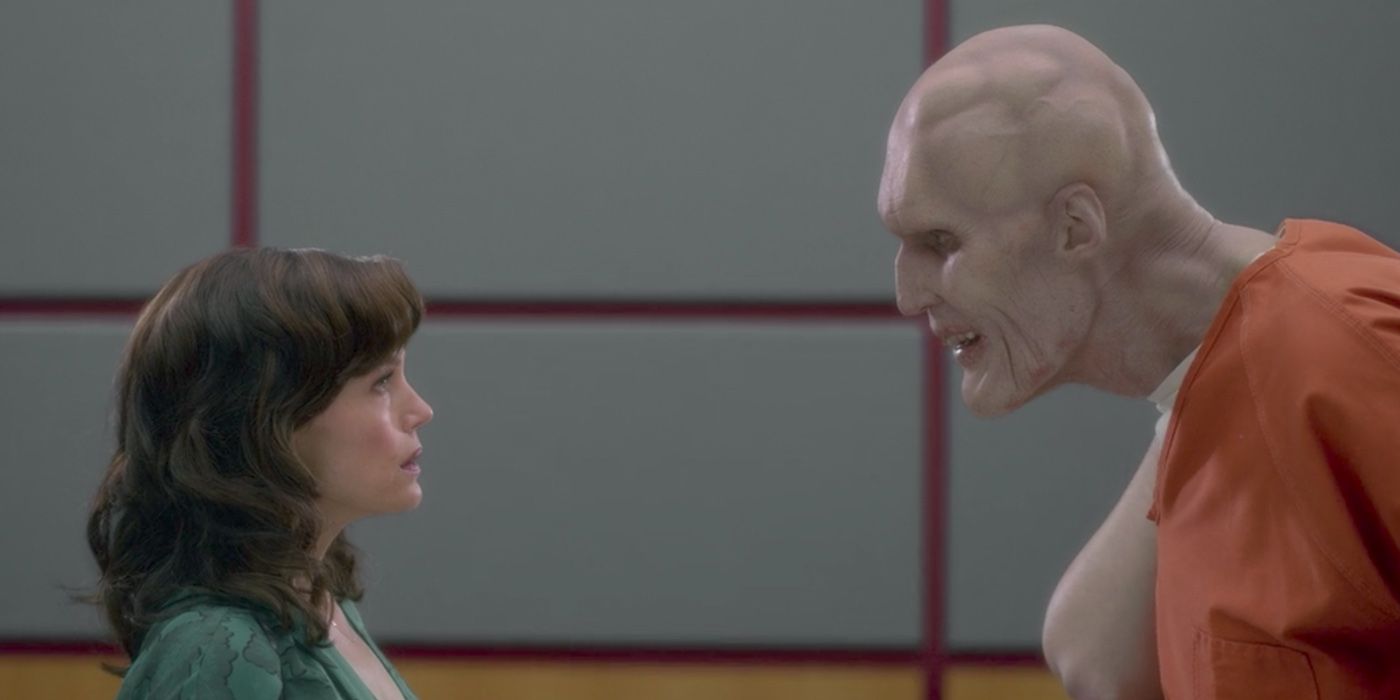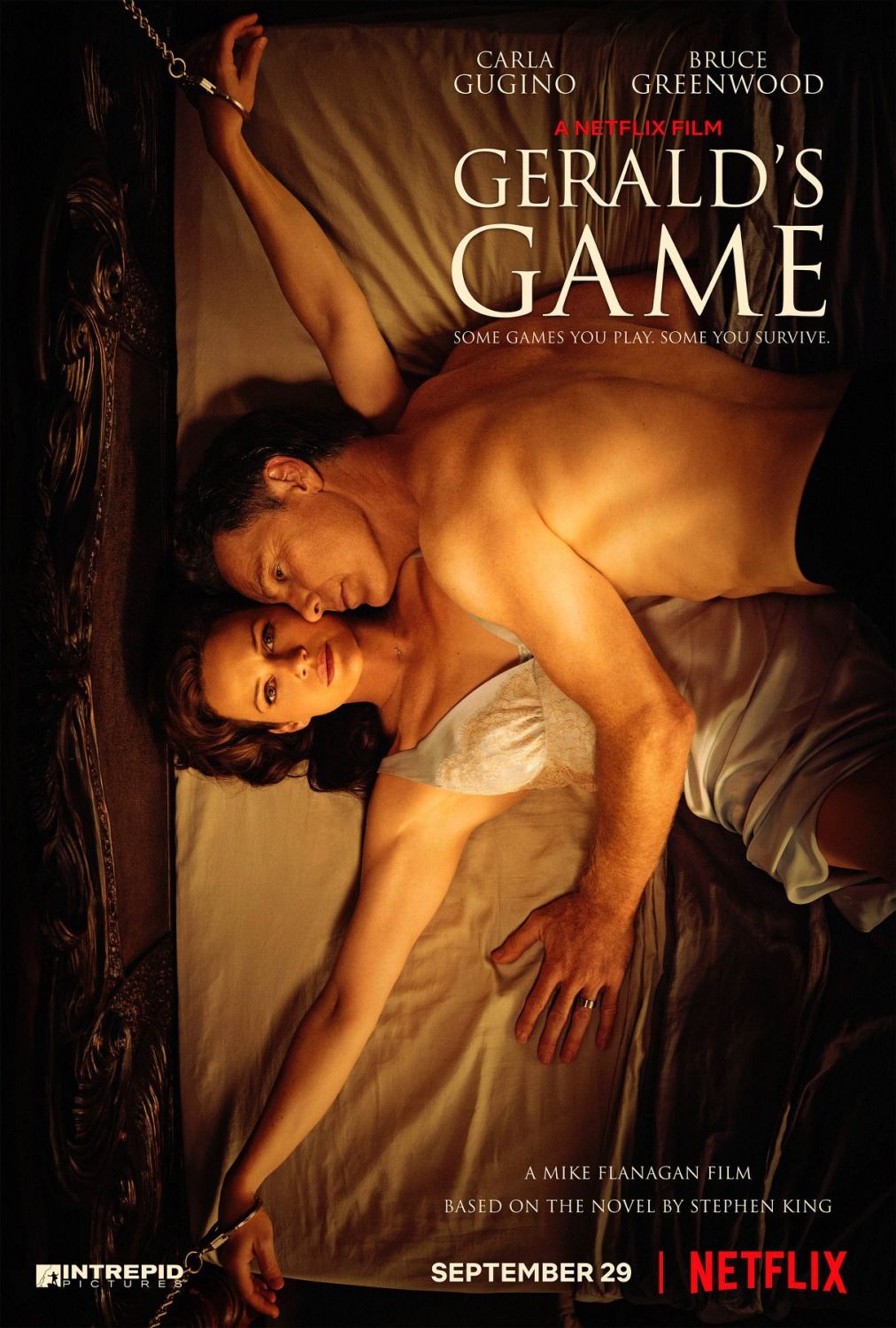Warning: Major Spoilers for Gerald's Game Ahead
-
Gerald's Game director Mike Flanagan explains the film's divisive ending. All in all, 2017 has been a pretty good year for adaptations of Stephen King's work. While The Dark Tower flopped and The Mist was canceled after a single season, director Andy Muschietti's R-rated take on IT quickly became a monster hit, and will soon pass the $300 million mark at the domestic box office. On the small screen, the Audience Network's series adaptation of Mr. Mercedes has also been well-received, and even featured a cameo from King himself.
Giving IT a run for its money in the acclaim department though is 2017's latest King adaptation, Gerald's Game. A Netflix original movie, Gerald's Game adapts King's 1992 novel of the same name, and is directed and co-written by Mike Flanagan. The story concerns Jessie (Carla Gugino) and Gerald Burlingame (Bruce Greenwood), a married couple looking to rekindle their passion for each other with a little kinky sex at their secluded mountain cabin. Unfortunately, things go horribly awry, and Gerald ends up dead of a heart attack. That leaves a shocked Jessie handcuffed to a bed, with no real hope of rescue. If she's to somehow get out of this, she'll have to do it herself.
Related: Gerald’s Game Review
While both the critical and audience reactions to Gerald's Game have been very positive, there is one sticking point that many have, and it has to do with the film's ending. Over the course of the film, Jessie begins to crack mentally, and hallucinates. A couple times, she encounters a menacing figure referred to as The Moonlight Man, which appears to be another hallucination. After Jessie finally escapes her bondage and returns home, she discovers that this monster was in fact a real life serial killer, and later confronts him in person. While some found this denouement a clunky way to end the film, Flanagan recently explained to Bloody Disgusting why he felt it needed to be there.
"It was something when I read the book that I loved. I know it was polarizing with fans of the book, so the people that hated that epilogue in the book are going to hate it in the movie. I fully expect that [the epilogue is] going to be the lightning rod for people to be like ‘Oh I was so into it and then (groans) that ending.’ But that’s what happened in the book. There was never a time where it felt right to do the film without that ending, for better or worse."
As is readily apparent when reading Flanagan's above statement, the director's decision to preserve the final twist involving The Moonlight Man seems to be mostly fueled by a desire to faithfully adapt King's book, despite his clear awareness that some viewers would find the ending disappointing. As Flanagan points out, the ending twist was also polarizing among King's readers, so there was no reason to expect that feeling not to carry over to the film.
In a world where King fans often find themselves lamenting just how much filmmakers change when adapting his works, the divided reaction to the ending of Gerald's Game just goes to show that even when a director goes out of their way to stay faithful to the source material, the result still won't please everyone. Next up on the King adaptation docket is 1922, a tale of murder and madness starring Thomas Jane. That is also a Netflix original movie, and debuts on the service on October 20.
More: How Gerald’s Game Adapts Stephen King’s ‘Unfilmable’ Novel
Source: Bloody Disgusting



